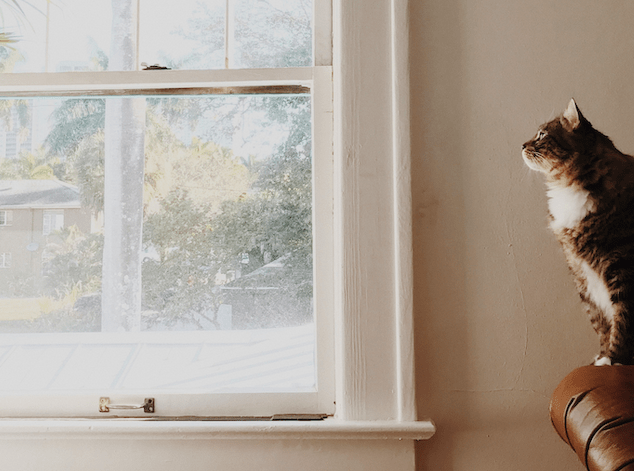Clinically Extremely Vulnerable: my experience of shielding during the pandemic
During my first year of university, I was diagnosed with an increasingly common autoimmune disorder called Crohn’s Disease. I won’t go into the nitty-gritty, but this meant missing the majority of my face-to-face teaching and spending much of my time alone in my room in halls.
Since my diagnosis, I’ve trialled various medications, had numerous courses of steroids, and suffered from comorbidities including a severe chest infection at the beginning of third year that saw me tremblingly confined to a Covid-positive ward in A&E – not a fun end to the cheese and wine night my housemates and I had planned.
Shielding essentially entails never leaving your home
As a result of the immunosuppressive medications prescribed for my disease and, of course, my disease itself, I am classed as Clinically Extremely Vulnerable (CEV), and from the first lockdown, I was told to shield. Shielding essentially entails never leaving your home – you’re even advised against your legally-entitled once-a-day exercise break.
To quote from an email from the government, you should “stay at home as much as possible” and “you are strongly advised to work from home if you can. If you cannot work from home, then you should not attend work”.
I’m not the only CEV person in my home as my dad is diabetic and immunosuppressed, and my mum is a breast cancer survivor and COPD sufferer, so we’re an entire household of shielding people. This means not going out to collect our prescriptions, not going to the shops and, most devastatingly of all, it meant meeting my first-born niece via a Skype call, because we weren’t allowed to visit or hold her.
I have seen my closest friends exactly once since the beginning of 2020
My experience of shielding during Covid-19 has definitely been… well, an experience. My long-term relationship broke down two months into the first lockdown. Not seeing one another, on top of our pre-existing issues, made it impossible for us to talk without falling into repetitive arguments.
For the first lockdown, the second, and now the third, I have been reluctantly adhering to shielding guidelines. I have seen my closest friends exactly once since the beginning of 2020 and, other than a brief stint in rented accommodation before Christmas, this was the only time that I saw someone my own age the entire year.
I experienced the infamous lonely lockdown birthday in June and spent New Year’s Eve at home alone (albeit having a drunken dance party via Facebook call). This might sound like a deluge of complaints, but I’m not even among the worst-off in this scenario, because at least I’m healthy, and my loved ones are safe.
I only wish that I weren’t vulnerable so that I could do the same
So, what has it been like to shield during a national pandemic? Terrifying, lonely, and seemingly endless.
I miss the small things, like taking my mum to the supermarket and spending half an hour wandering around the clothes section. I miss going to the pub with my friends and meeting fifteen other people I’d completely forgotten I knew. I miss face-to-face learning at university.
I miss my extended family, and meals out, and holidays. I miss going outside without the irrational fear that I’m going to catch something, and get sick, and be unable to breathe – a feeling I’m all too used to, having suffered from numerous chest infections. There have been days at a time when the only voice I’ve heard has been my own. I completely understand people my age meeting up safely and taking every opportunity they can to enjoy themselves. I only wish that I weren’t vulnerable so that I could do the same.
It is upsetting to me, as someone whose life has been put on hold, to see people living as though Covid-19 is some kind of made-up conspiracy
One of the most frustrating things for a shielding person has to be Covid-deniers. It is upsetting to me, as someone whose life has been put on hold, to see people living as though Covid-19 is some kind of made-up conspiracy; a ‘scam-demic’.
My ex-partner worked as a healthcare assistant on a Covid ward, and every day when I picked him up from work, I saw the visible signs of strain – deep grooves on his face from tight-fitting PPE worn for several hours at a time, bags under his eyes, and a careful distance between us.
He told me troubling tales of a lack of ventilators, young patients struggling to breathe, and, ultimately, numerous deaths. My dad also works in a hospital, and he has lost patients under the age of 40 to this disease. Like many other healthcare professionals, he has the heart-breaking job of telling parents that they have outlived their child.
Please don’t be afraid to ask for help, and remember to stay safe
When you’re made aware of devastating scenarios like this, and you’ve spent the best part of a year shielding to avoid similar, it is even more upsetting to see pictures and videos of people flouting guidelines.
It can feel incredibly isolating when your only human contact is through a computer screen or a phone call, but no matter how isolated I have felt this year, I am grateful that I’m around to feel this way. I can only hope that it will all be worth it at the end of the day when I can hug my friends, get my degree, and focus on rebuilding everything that I have lost this year to the ravaging effects of Covid-19.
If anyone else, shielding or otherwise, is going through the same struggles I am right now like loneliness, a lack of motivation, and a feeling that there is no end in sight – please don’t be afraid to ask for help, and remember to stay safe.

Comments